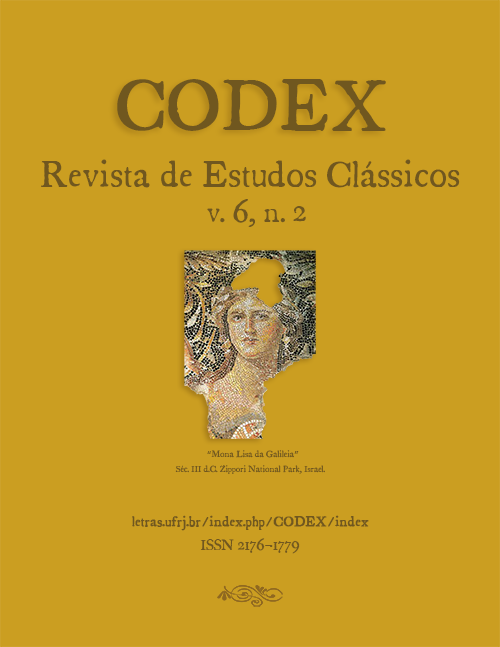Hesiod in Euripides: Alcestis
DOI:
https://doi.org/10.25187/codex.v6i2.21260Keywords:
Euripides, Alcestis, Heracles, Hesiod, myth of PrometheusAbstract
The tragedy Alcestis by Euripides and the Hesiodic myth of Prometheus have two common issues: Heracles as one of the characters and the theme of mortality as human condition. Exploring these two issues and their relationship in this tragedy can show us why Heracles is present in this tragedy, how his presence coheres deeply to the meaning of this tragedy and eventually exploring them can show us the very tragic meaning of this drama.References
EURIPIDES Alcestis. Edited with an Introduction, Translation and Commentary by D. J. CONACHER. Oxford: Aris & Phillips, 1993.
EURIPIDES Alcestis. Edited with Introduction and Commentary by A. M. DALE. London, Bristol Classical Press, 2003.
EURIPIDES Alcestis. Edited with Introduction and Commentary by L. P. E. PARKER. Oxford, Oxford University, 2007.
EURIPIDES’ Alcestis. With Notes and Commentary by C. A. E. LUSCHNIG and H. M. ROISMAN. Oklahoma, University of Oklahoma, 2003.
EURIPIDIS FABULAE edidit J. Diggle. 3 vols. Oxford Classical Text. 1984, 1981, 1994.
HESÍODO Teogonia A Origem dos Deuses. Estudo e Tradução de Jaa Torrano. São Paulo, Iluminuras, 2006.
HESÍODO Os Trabalhos e os Dias. Tradução Introdução e Comentários de Mary de Camargo Neves Lafer. São Paulo, Iluminuras, 2002.
SOURVINOU-INWOOD, Christiane. Tragedy and Athenian Religion. Oxford: Lexington Books, 2003.
Downloads
Published
How to Cite
Issue
Section
License
This work is licensed under a Creative Commons Attribution-NonCommercial 4.0 International License.










